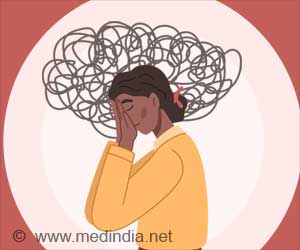Adults who have experienced childhood trauma are associated with a high chance of developing neurological conditions.

‘Adults who have experienced childhood trauma (abuse, neglect, or household dysfunction) are associated with a high chance of developing neurological conditions when compared to the general population.
’





“Traumatic events in childhood have been linked in previous studies to a higher risk of heart disease, diabetes, riskier health behaviors like smoking and drug use, and decreased life expectancy. They have also been linked to a higher risk of headaches, but for many other neurologic conditions, little is known. Our study found that people with neurologic conditions like stroke, headache and epilepsy were more likely to have experienced abuse, neglect or household dysfunction as children when compared to the U.S. population,” says study author Adys Mendizabal MD, of the University of California Los Angeles and a member of the American Academy of Neurology. The study team involved 198 patients at a neurology clinic who were asked to complete a questionnaire (scoring of 0-10 & equal to or >four were considered high scores) about adverse childhood experiences. They were then screened for anxiety and depression.
Neurological Conditions and Childhood Trauma
The frequency of emergency department visits by the patients was also determined through their medical records. It was found that within the study group, 24% had elevated scores, compared to 13% of the general U.S. population.
Other findings were:
Advertisement
- Participants with high questionnaire scores had high use of healthcare services.
- They were 21 times more likely to use emergency department services than others.
- They had four or more emergency visits in the last year.
- They were five times more likely to be hospitalized.
- At least three or more times were even hospitalized in the last year.
- These patients were three times more likely to call their clinic; 15 times or more within the last year.
- In addition to their neurologic condition disability or greater medical needs, participants with high scores were six times more likely to have an additional medical condition.
- They were also five times more likely to have a psychiatric condition.
- And seven times more likely to have high depression scores & four times more likely to have high anxiety scores.
Source-Medindia












